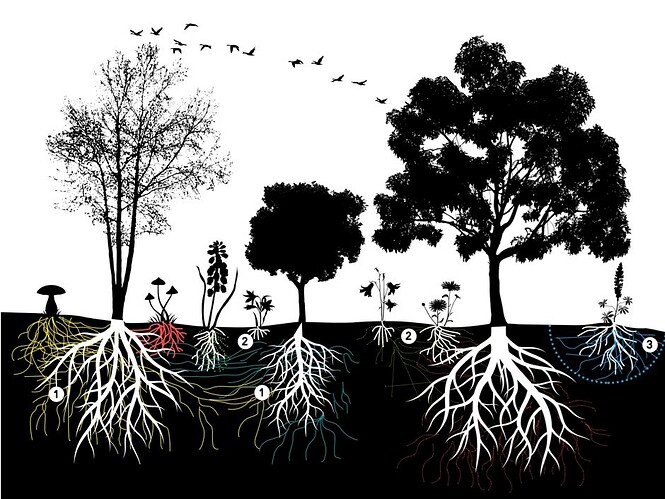Trees have a form of consciousness. All living beings are conscious to a greater or lesser degree. (This was the original definition we went with before you began bleeding theories together. You can not merge theories. If you are going to discuss Nagel’s version of consciousness you must stick to the paradigm. If you are going to discuss Chalmer’s version of consciousness you must stik to what he is talking about. Again, you are all over the map.)
Way back when… About the time you began this conversation. Consciousness was defined and agreed upon. “Consciousness is an ambiguous term. It can be used to mean self-consciousness, awareness, the state of being awake, and so on.” (CAN BE USED) That is not what we are discussing. We are discussing consciousness. (SELF AWARENESS IS A VERY ADVANCED FORM OF CONSCIOUSNESS - only a very few species on the planet, that I am aware of, are self-conscious.) Using, ““the feeling of what it is like to be something,” is at the core of self awareness. Does a hamster know it is a hamster? Does a chicken know it is a chicken? Nagel and Chalmers are not even closely talking about the same thing when they discuss consciousness.
Nagel: According to Nagel, a being is conscious just if there is “something that it is like” to be that creature, i.e., some subjective way the world seems or appears from the creature’s mental or experiential point of view. (Having an experience is enough to qualify as consciousness.) Nagel is not committed to dualism , he claims that physicalism, if it is to be convincing, needs to account for both objective and subjective experience. Both are required to understand the mind-body problem
Chalmers: Chalmers argues for an “explanatory gap” from the objective to the subjective, and criticizes physicalist explanations of mental experience, making him a dualist. (He believes in a mind body split.) Chalmers characterizes his view as “naturalistic dualism”
You are bounding all over the map. Look closely at the claims of one of these individuals, just choose one. Then see if you can understand what he is talking about. How is consciousness defined. What exactly is he talking about. Is it a specific level of consciousness? Is it only human consciousness? Every paradigm has boundaries. Think of it this way. Each man is living in a magical kingdom. In their magical kingdom they describe the events they see. In each of their kingdoms they use the same words to describe the same perceptions differently. This is not a problem as long as they are perfectly clear at the very beginning, what they mean when they use specific words. You too must be very clear what you mean when you say “Consciousness.”
I have given you a very clear definition of what I mean twice now. Obviously I am not a dualist. Consciousness is a manifestation of a physical state of being. A thing that percieves stimuli in the world around it, is conscious. Beyond that, we have evolution of the thing we are calling consciousness. Think of the conscious awareness that develops in a newborn. Does the fetus have awareness? It is in fact conscious to a degree. It does respond to its environment. And what of the newborn. What of the one year old, the two year old, the five year old, the 8 year old, the teen, do you not see levels of consciousness from simple stimulus response to cognitive awareness of the self?
Yes, trees are conscious. Not in the same way a human being is conscious. They are aware of their surroundings and respond to their surroundings. Mountains of research have confirmed that plants have intelligence and even beyond that
consciousness by many of the same measures as we do. Not only do they feel pain, but plants
also perceive and interact with their environment in sophisticated ways. Increasing numbers of researchers, in a multiplicity of fields, are beginning to acknowledge that
intelligence is an inevitable aspect of all self-organized systems—that sophisticated neural
networks are a hallmark of life.

